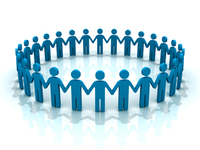
In Yad Binyamin, a yishuv in the south of Israel where I live, I feel relatively safe despite the continuous barrage of terror attacks Israelis have recently experienced. Nevertheless, there have been real and noticeable changes in the behavior of Jews in Israel since the most recent current onslaught of violent and indiscriminate shooting, stone throwing, knifing and car ramming attacks. Israelis are less likely to walk and text or even walk and talk on the phone while they are out and about. They need to be vigilant and alert to their surroundings. Many people I know take with them objects that can be used for self-defense when they venture out doors for work or shopping. These objects include guns (if they have them), knives, pepper spray, umbrellas, rolling pins, and even oven sprays. There has been such an increased demand for pepper sprays that many distributors are out of stock or are selling the few available at greatly inflated prices. There has also been a rise in self-defense classes for men, women and children.
Many people I know began to minimize outings; some avoid big cities, others certain roads or areas that are known to have mixed Arab/Jewish populations. In this way, people try to reassert some control over a situation that engenders feelings of helplessness and vulnerability. However, as this wave of terror attacks has persisted, people have realized that they remain vulnerable irrespective of where they may be located. These attacks have not been limited to Jerusalem, or to areas in Yehudah and Shomron. Major Anglo enclaves, such as Ranaana and Beit Shemesh, which are far removed from Arab population areas, have also been targets. Security experts distinguish this wave of terror attacks from past waves in that the current attacks do not seem to be coordinated by terrorist groups or cells, but rather, appear to be largely the result of “lone wolves” – men, women, and children who act independently. As a result, it is more difficult for law enforcement to anticipate and preempt these attacks.
Although one’s natural reaction to this state of terror may be to isolate oneself by staying at home, many have chosen the opposite reaction. In a conscious rejection of the terrorists’ aims, many people have made a point of increasing their connections with others as a way to express communal solidarity. Examples of this have included: groups returning to the site of an attack, singing and dancing to the words of “Am Yisrael Chai” (the Jewish People live on); unity concerts with both religious and secular Jews dancing to the song “Am Yisrael Lo Lifached” (The Jewish People have nothing to fear); groups of Jews gathering in the streets of the old city of Jerusalem for Challah Baking on Friday afternoon and for a communal Kiddush on Shabbat; and new Torah-learning groups and Tehillim groups cropping up all over the country. Not only do these responses frustrate the intentions of the terrorists, but they also serve as therapeutic support groups whereby people gain courage, faith, and comfort from one another. This response draws on a Jewish tradition that encourages communal gatherings in times of difficulty, such as visiting a mourner and saying kaddish with a minyan. As therapists, we are all familiar with the research that cites the substantial benefits of support systems for the process of healing from stress and trauma*. In Israel, we are now actualizing these benefits by gathering together in groups, thereby encouraging and supporting each other.
* Ozbay, Johnson, and Dimoulas et al. Social Support and Resilience to Stress: From Neurobiology to Clinical Practice. 2007. Psychiatry (Edgmont) 4(7). http://www.ncbi.nlm.nih.gov/pmc/articles/PMC2921311/

 Previous
Previous
